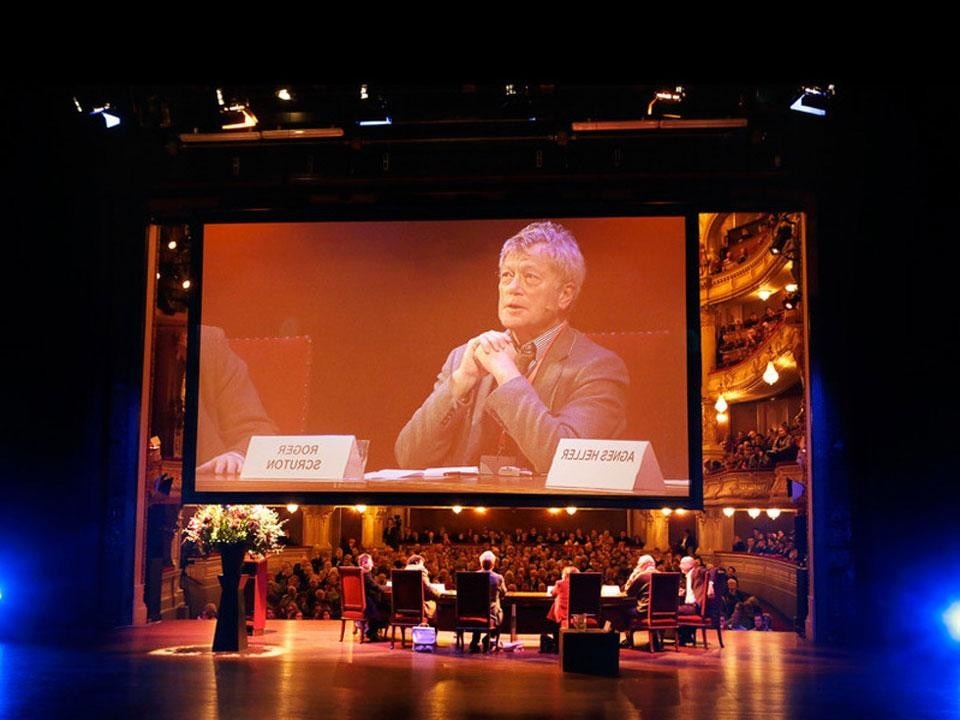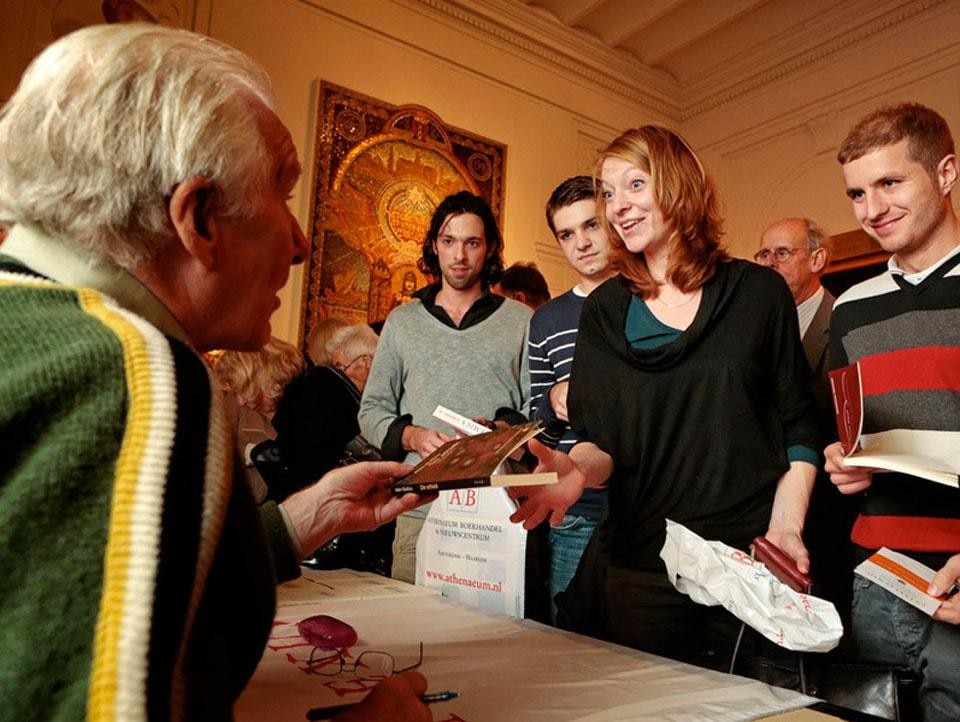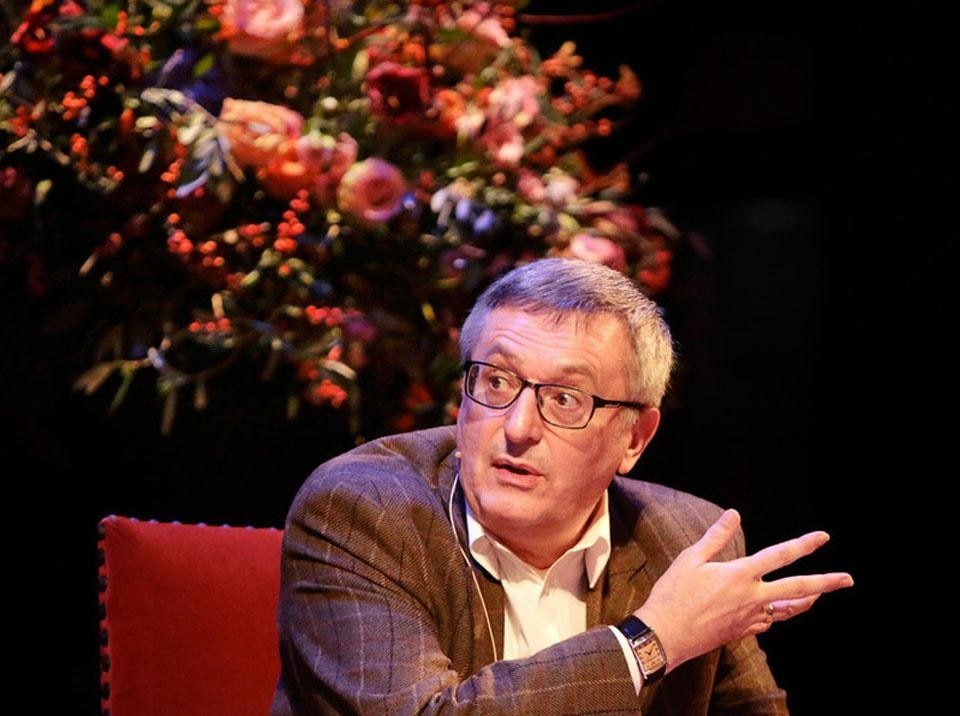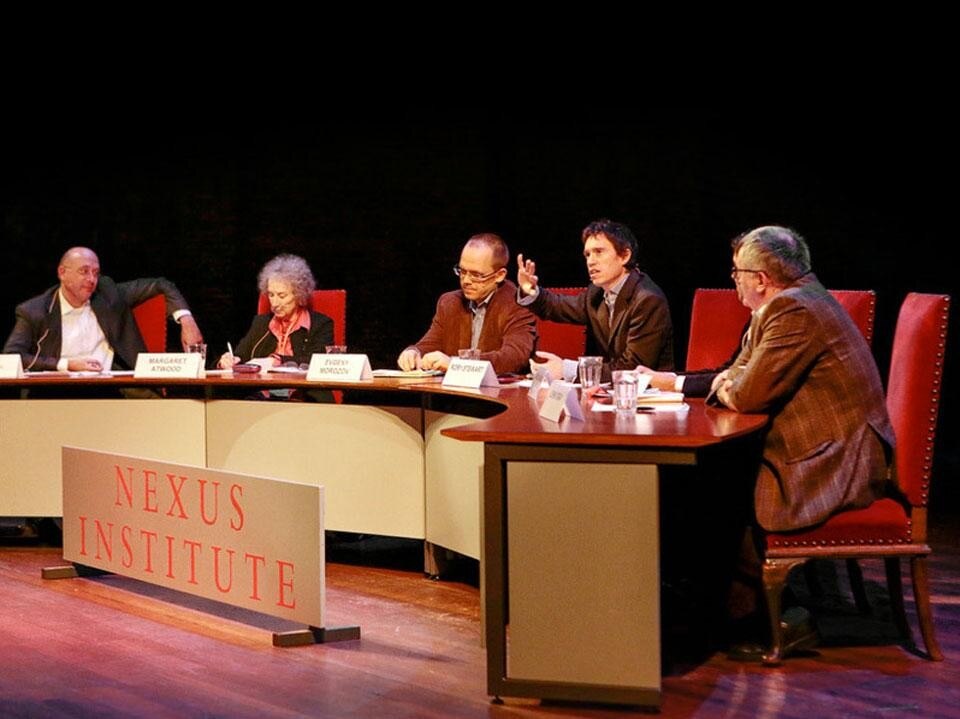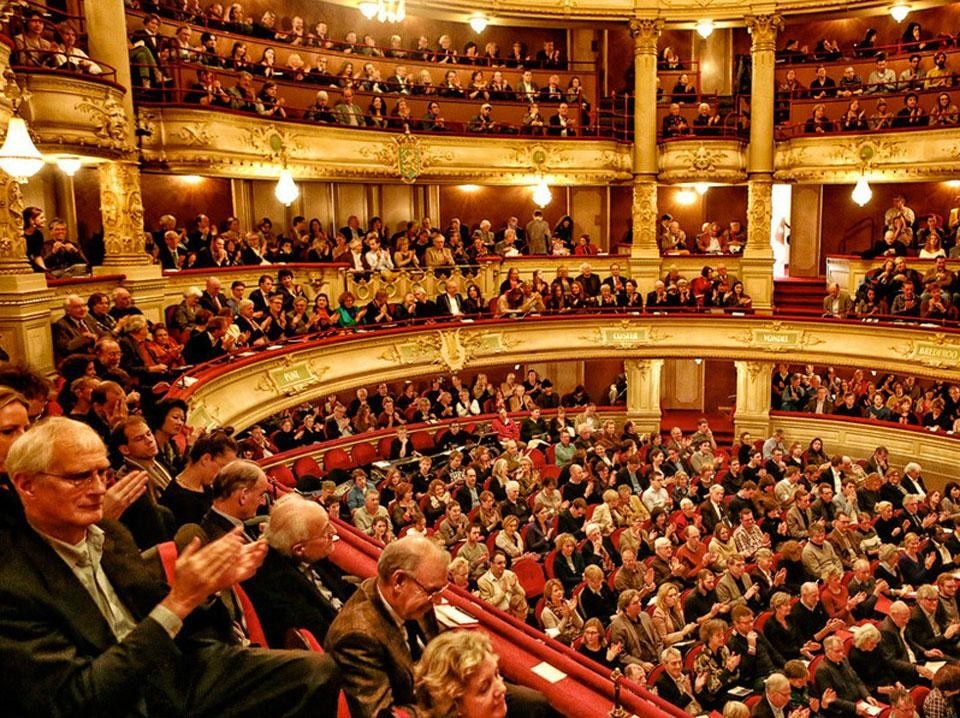Such thought-provoking ideas were followed by an invitation to Amsterdam to be the keynote speaker in the yearly Nexus Institute conference, this year ambitiously titled How to Change the World. Unfortunately, Ljubliana's most famous intellectual couldn't make it to the event for health reasons, but a valuable replacement was found in no less than Alain Badiou, another renowned Hegelian materialist whose theory of the Event has much to do with change.
The French philosopher spoke to a dressed-up crowd of more than a thousand people in the historical Stadsschouwburg theatre in Leidseplein. After scaling down both the concepts of "world" and "change", Badiou described the Event as a local interruption in the repetition of the world (e.g. the cycles of capitalism), a rupture through which the Real breaks through, creating a space for possibility and a new world. As quoted in Žižek's book, the French philosopher sees the 2011 protests as flashes of a possible future where new subjects emerge, reaching beyond their previously closed identity (the Occupy Wall Street movement, for example, was able to envision a subject uniting both students and workers). By showing us a sample of such positive Real, the consequences of these events are realizations of the impossible.
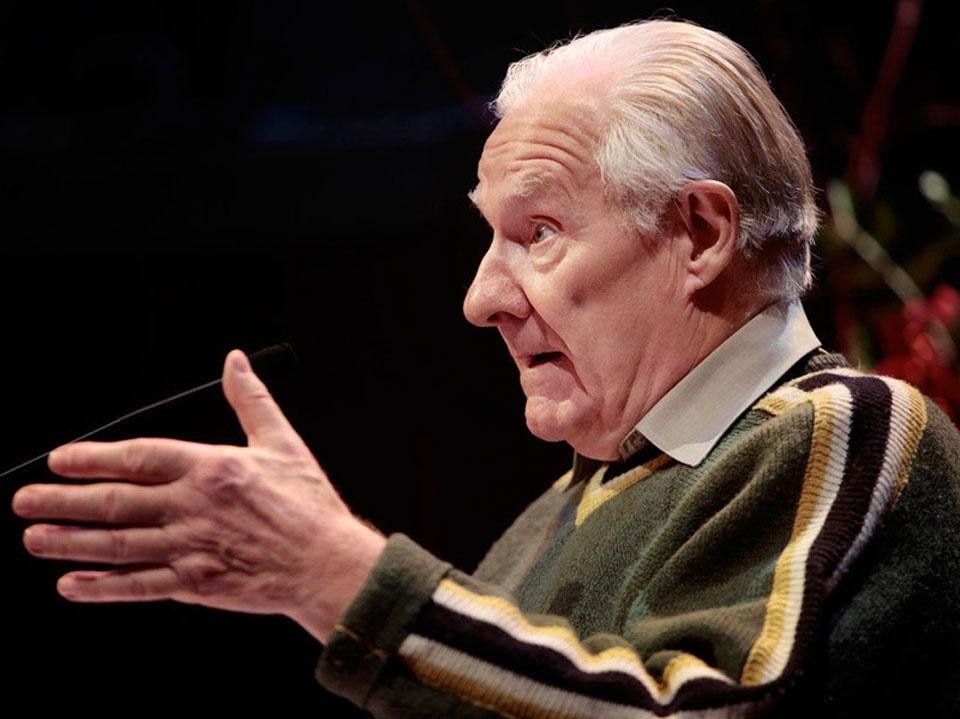
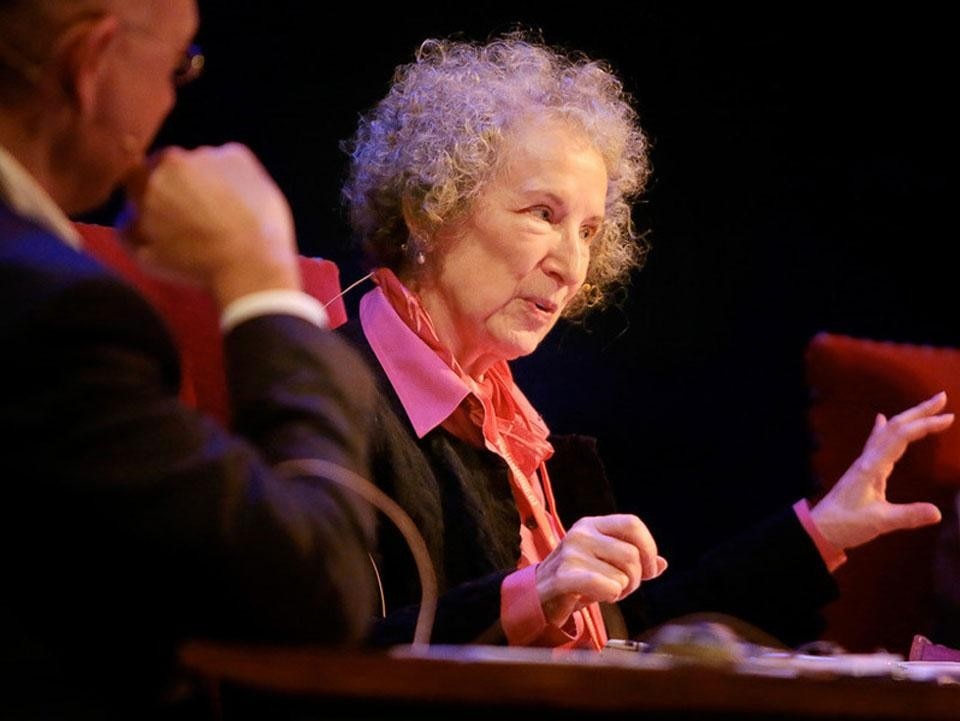
The keynote speech was followed by two debate sessions, one centred on the crisis of modernity, and another on technology and public engagement, with speakers ranging from political philosophers to best-selling fiction authors and conservative politicians. Unsurprisingly, one of the most crucial knots of the first panel was the failure of the Communist ideal as well as the impasse of modern democracy, which according to Badiou is an illusion and an instrument of power that keeps radical change from happening — namely, the change of capitalist relations.
Internet-sceptic Evgeny Morozov and tech-enthusiast Parag Khanna discussed the latter's concept of "pax technologica" — the notion that, in the future, a multi-polar, global modernization via technology will empower individuals at all latitudes, locally and horizontally
